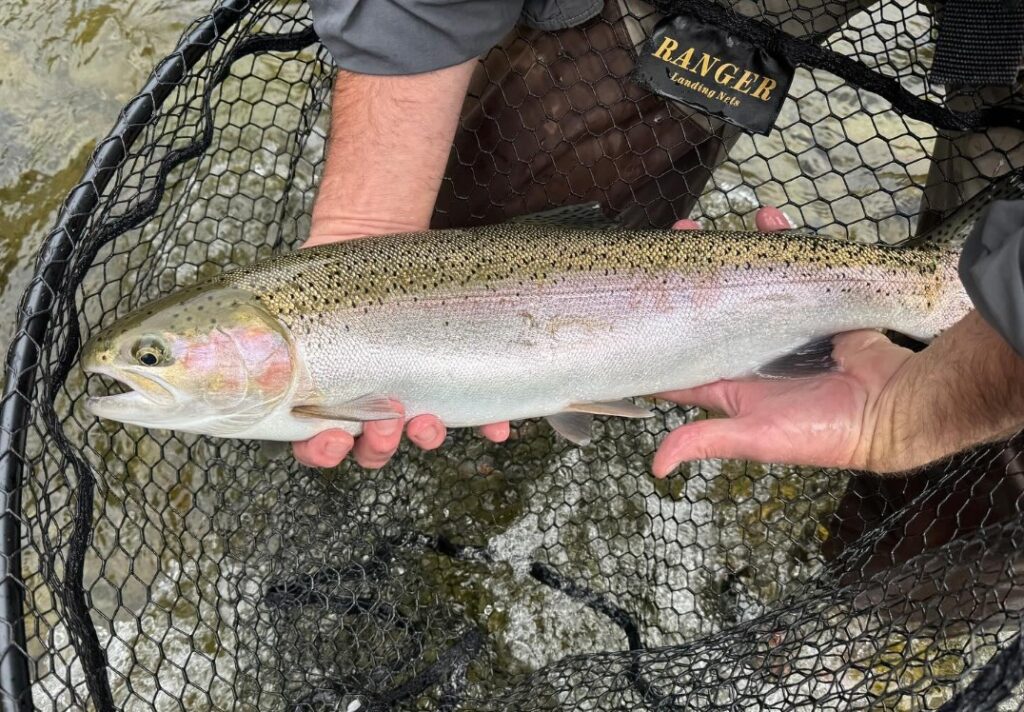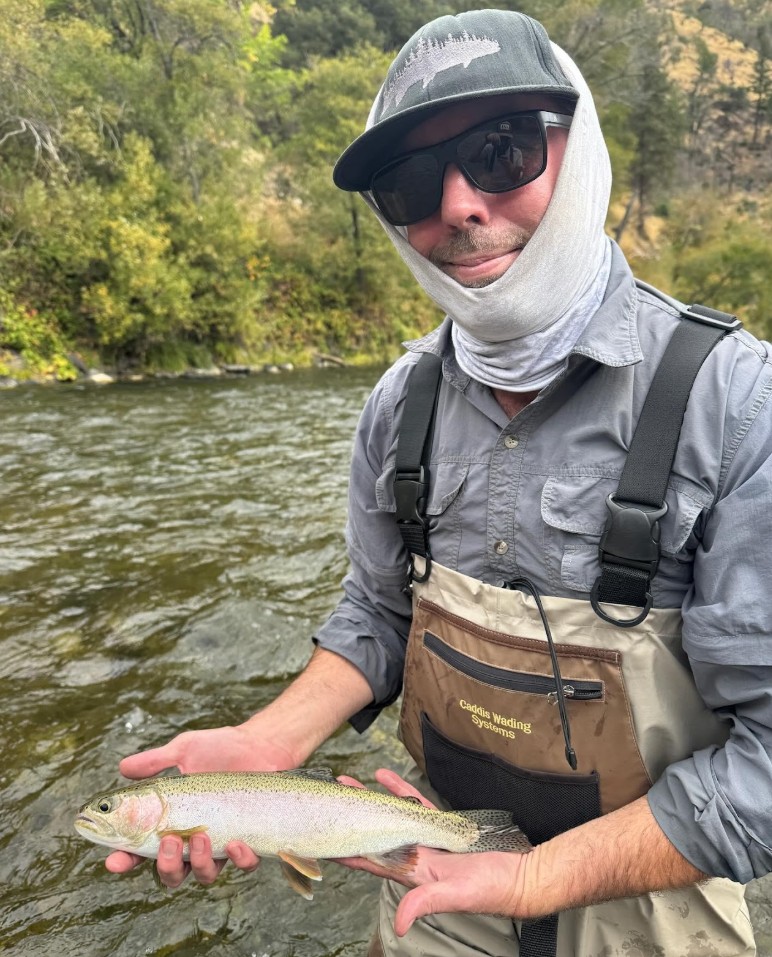As an environmental policy consultant for CSPA, I spend a portion of my time visiting fly fishing clubs to recruit club memberships. I’ve found that participating in club casting clinics is a great way to meet club administrators and members while working on my cast! Chatting with fellow anglers about their favorite rivers, and the concerns they carry about them, gives great insight into the culture and ethos of each fly fishing club. Many of these conversations reveal growing concerns of decreasing salmonid populations, increasing water temperatures, and loss of aquatic habitat.

A young steelhead trout from the Trinity River. Image: Eric Woodruff
Adding to the uncertainty is a shift from environmental protections by federal and state agencies, above all by their political managers. The current political climate has shifted a huge portion of the burden of environmental advocacy and action onto the shoulders of nonprofit non-governmental organizations (NGOs). Federal funding and grants that were once allocated to environmental protections are being slashed at alarming rates. For example, Nonpoint Source Section 319 grants have been cut by $174.3 million (Holland and Knight, 2025). This significantly impacts funding for investigating nonpoint source pollution in waterways. Moreover, the Clean Water Act has been rolled back to lessen water quality protections across the country.
Not all is lost as nonprofit NGOs have the opportunity and responsibility to increase their efforts toward environmental protections. Organizations like CSPA focus their work directly on regional impacts and pressures. More importantly, NGOs act independently of government control and leverage resources toward favorable environmental policies. CSPA continues to be instrumental in influencing environmental outcomes through various channels such as advocacy, litigation, public outreach, and multilateral collaborations.
From a grassroots level, NGOs like CSPA are filling the gaps left by government agencies and holding them accountable for their actions. However, these efforts are often faced with obstacles. Financial inadequacies can hamstring NGOs. External funding sources become ever more essential. Additionally, the current weakening of regulatory frameworks introduces new barriers that can halt an organization’s activities. Depending on the situation, federal and state support for environmental protections can be weak, lacking, and/or nonexistent.
These are just a few of the thoughts that circle my mind when I’m at work or on a river. If CSPA and other NGOs were not stepping up to face these current challenges, then who would be? NGOs are a safety net when the floor falls out from underneath environmental protections and can make a difference when resources are limited and political resistance is strong. It is imperative to empower advocacy groups to advance and enforce environmental policies, regulations, and laws. Grassroots support from stakeholders and donors is critical in maintaining those operations and procedures.

Eric Woodruff, environmental policy consultant for CSPA, with a young steelhead trout. Image: Eric Woodruff
So, the next time you’re enjoying a favorite stream or lake, consider the importance of NGOs like CSPA and others. Note the quality of the habitat, the temperature of the water, and the overall health of the fishery. Improving these elements are a top priority for CSPA, but we cannot do it without the help of individual and club memberships, donors, and grants. If you haven’t yet, please join the fight and become a member and/or donor today. We so greatly need and appreciate your contributions.
